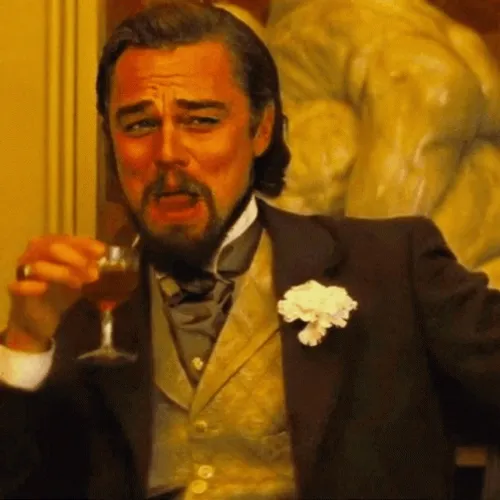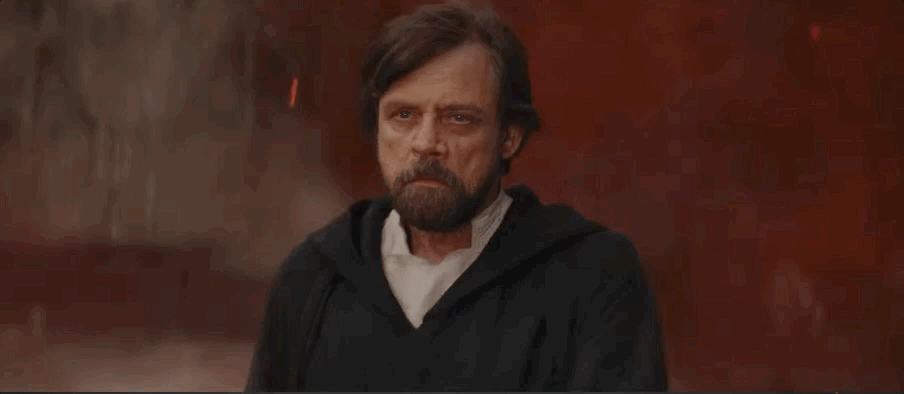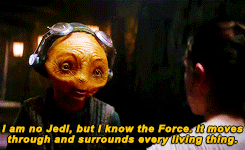A Harry Potter Theory
The world was taken by surprise when famed Harry Potter author J. K. Rowling announced plans for a play based on the much-beloved children’s book series. In the summer of 2016, I along with scores of other Potterheads stood in line at Strand Bookstore to pick up my copy of the play script the night of its release. Two days after that, I would put the book down, having read it in its entirety, feeling… underwhelmed and thoroughly confused.
There’s plenty that I enjoyed about the story; I loved the focus on Harry Potter’s middle child and his less-than-adventurous years at Hogwarts, a great contrast from Harry’s own tumultuous childhood; I loved the reversal of fan expectations by making young Albus Potter a Slytherin and best friends with Scorpius, the son of Harry’s hated school rival; and, most importantly, I loved Hermione as Minister of Magic (childhood complete!). And while there’s plenty to nitpick at the less than stellar plot of the play and odd pacing issues, I ultimately forgave those things because it wasn’t written by Jo Rowling.
| Not what anyone was expecting but not terrible, either. |
That being said, the play did get a story treatment by Rowling and should, much as some of us are abhorred to, be considered Wizarding World canon. However, there is one detail in this story that has been nagging at me since my first reading, one detail that I can’t fully wrap my mind around: the parentage of Delphini, the play’s big baddie. Delphini is proclaimed the daughter of Voldemort and Bellatrix Lestrange, but something about that doesn’t ring true to me.
According to an article by The Vulture, the union of Voldemort and Bellatrix resulting in Delphini may have its roots in history, specifically the union of Adolf Hitler and Unity Mitford, a union that was rumored to result in a love-child that is still alive and well today. The article even adds weight to this possibility by explaining Jo Rowling’s love and admiration of Unity Mitford’s sister, Jessica, and even goes so far as to suggest that Jessica, Unity, and Diana Mitford were the inspiration for sisters Andromeda, Bellatrix, and Narcissa Black from the novels. While that’s all well and good, unlike Hitler, Voldemort was less than human and had no compunction for basic human needs, including the need for love, human contact, and, yes, sex.
I actually tried to imagine Voldemort and Bellatrix having sex and… just… No.
I say “No” not because it’s not possible since Voldemort could have tried any number of magical means to feel the necessary human emotions required to engage another human in sex (love potion, anyone?) or because sex between two unlikely parties never happens (let’s face it: it happens all the time). I say “No” because it is very simply the most un-Voldemort thing for Voldemort to do, and Rowling is nothing if not consistent with her characterization.
Bellatrix may have had an unhealthy love bordering on obsession thing for Voldemort, but the reality is that Voldemort not once reciprocated her feelings. He saw her as a devoted follower, someone whose loyalty he would never have to question. But here’s the kicker: Voldemort is not incapable of showing affection for another living thing, it’s just that he’s never shown such affection for Bellatrix.
The one living, breathing creature Voldemort has ever shown any amount of affection for or looked at lovingly and protects vehemently, not because she’s loyal, but because Voldemort, I think, genuinely loves her the only way he knows how is his snake familiar, Nagini.
So to cut right to the chase, here’s my theory: the true parentage of Delphini is Tom Marvolo Riddle, aka Lord Voldemort... and, that’s right, Nagini.
Yes, you read that correctly. And before you start thinking of all the ways this is impossible, let me break down how it is, in fact, very possible.
I’ve already explained Voldemort’s side of this theoretical union: his lack of interest in basic human connections and his disdain for Bellatrix that makes that union not only unlikely but also counter to Voldemort’s very nature. However, before I get into how Nagini being the mother of anything is even possible, it’s important to discuss Bellatrix anyway. I may not believe she’s the mother of Delphini, but that doesn’t mean she didn’t have a role to play in Delphini’s existence.
As I’ve stated before and as is very well known among fans, Bellatrix is intensely faithful to Voldemort and, more importantly for the sake of my argument, remarkably unhinged. I don’t think there’s anything she wouldn’t do for him and few would disagree with that. So here’s what I think really happened:
Voldemort was down to his last remaining Horcruxes and his immortality was, for the first time ever, truly in jeopardy. That’s the motivation for his next attempt at immortality: a child, an heir. This becomes the object of his obsession especially since he’s the last heir to the Slytherin’s legacy, a legacy he would be eager to maintain. A child would not only keep the bloodline going for one more generation but, in the possible event of his death, Voldemort could still leave something behind. He could leave someone behind, someone to carry out his plans and fulfill his dark purpose. In the play, Harry calls Delphini Voldemort’s “ultimate Horcrux.” I think that’s an apt description.
But, as we saw with how meticulously he chose his Horcruxes, the mother of his child couldn’t be just anybody. Voldemort would have given this union much thought and Bellatrix would have been the obvious choice; she’s a pureblood witch with strong familial ties and an ardent Death Eater. Why not?
Here’s why: as much as Voldemort is unaccustomed to or even abhorrent of human contact (that impromptu hug he gave Draco in the films comes to mind), he’s also remarkably driven by his emotions. He does whatever he feels like doing and many of his reactions to the events around him are emotional reactions. So, while Bellatrix may be the obvious choice, he wouldn’t feel like making that kind of commitment to her nor, I think, would he want to reward Bellatrix’s unhealthy obsession with him. But, as I said, Bellatrix would still have a role to play.
So, Voldemort hatched his plan and, being able to communicate with Nagini, laid it out for her. Nagini would take on the form of Bellatrix using Polyjuice Potion and would drink every hour for the nine months it would take for a child to form and be born. Not enough has been revealed about Nagini for me to even begin to speculate why she would agree to do this, but there’s also not much is prompting me to think she wouldn’t agree to this. After all, she’s just as faithful to Voldemort as Bellatrix, if not more so.
Still think it’s impossible?
First of all, it should be noted that I had given up on this theory a few months back because when I researched if this was even possible, the Harry Potter Wiki page on Polyjuice Potion states that the potion does not work on non-humans. So, that was that; Polyjuice Potion wouldn’t work on Nagini so my theory suddenly had no backing.
That is until Nagini was revealed to be a Maledictus and that her human form would be played by Claudia Kim in the upcoming film Crimes of Grindlewald. For those of you who may not be familiar, a Maledictus is someone with a blood curse, a curse that causes them to transform permanently into an animal. Nagini was born human but now lives her life as a snake because of her blood curse. She cannot turn back to her human form even if she wanted to. Some have theorized that the reason she’s so loyal to Voldemort is that, as a Parselmouth, he was the first and only human contact Nagini ever got after her blood curse had fully taken hold of her.
 |
| Human Nagini, meet Snake Nagini |
However, we know that Nagini could still achieve human form through magical means as she did in Harry Potter and the Deathly Hallows when she impersonated Bathilda Bagshot. Now, the way it’s written in the novel and the way the Harry Potter Wiki describes it, Nagini was not so much impersonating the old woman as she was “possessing her corpse,” an act that required some as of yet unexplained Dark Magic on Voldemort’s part. So, perhaps stating that Nagini can somehow turn human temporarily is a bit of a stretch, but it’s still not impossible. There is still so much surrounding Nagini that we’re still learning about and still don’t understand, like how her venom kept Voldemort alive in Goblet of Fire or how Voldemort was even able to make a living thing a Horcrux intentionally. Regardless, Nagini may be a snake, but she was once human and is highly magical, so I’m willing to bet that Polyjuice Potion does work on her. I initially thought Nagini was using Polyjuice Potion to impersonate Bathilda Bagshot based on the way the moment was filmed. That impression I got from the film was where I first started to form this theory.
The way Nagini is able to speak and manipulate objects as Bathilda doesn't seem possible if all she's doing is coiling up in a corpse's empty chest cavity. Not to mention that when Nagini appears, there's no corpse to be seen. There's nothing but a bundle of robes and a snake. Also, what did Hermione find inside that blood splattered room buzzing with flies? I'm willing to bet that was Bathilda's mutilated body. So, yeah, I don't buy the whole corpse possession nonsense, at least not with the way it was filmed. The book's description makes it more feasible, but it is not without its issues.
Furthermore, I think this theory makes some sense with both the film and the book canon. When Delphini’s parentage was announced in Cursed Child, many people did the math and realized that Delphini must have already been born by the time Bellatrix, Nagini, and Voldemort died at the Battle of Hogwarts in May of 1998. Most estimate her birth to have taken place sometime in the summer of the previous year after Albus Dumbledore’s death because Bellatrix Lestrange was not on the Astronomy Tower the night of June 30th, 1997. Many speculate that she wasn’t there because she was pregnant with Delphini.
It is important to note that neither Bellatrix nor Nagini make an appearance in Half-Blood Prince and only Bellatrix appears in the film adaptation. To say that Bellatrix was with child at the end of the Half-Blood Prince is problematic because she appears in the film; it’s possible she is pregnant in the film and just not showing yet, but I doubt it. I can’t imagine Voldemort putting his child in any kind of danger and Bellatrix is not one to shy from a duel. No, if Bellatrix was pregnant the night of Dumbledore’s death, she would have stayed far away and in hiding. After all, any child of Voldemort would be in danger; she had to be kept secret as well as safe.
Of course, it’s also possible Bellatrix wasn’t pregnant just yet at the point. Or perhaps Delphini was already born by June 1997. I considered that as well. I believe Delphi was one year old when Voldemort died in May of 1998, the same age Harry was when he lost his parents to Voldemort. It would be like Rowling to make those patterns repeat; she had already repeated that pattern with Teddy Lupin when Remus asked Harry to be Teddy’s godfather (like Sirius before him) only for Teddy to lose both his parents at the Battle of Hogwarts mere weeks after his birth. So, why not give us that rhyming poem with Delphini? Here’s this girl with so much on her shoulders, the last remaining heir of Salazar Slytherin and the progeny of Lord Voldemort, living an orphaned life not so dissimilar from Harry’s? That kind of foil character just writes itself.
So, Nagini carried Delphi to term as a magical doppelganger of Bellatrix and gave birth in the summer of 1997. That means Nagini was pregnant throughout the entirety of Half-Blood Prince and Bellatrix is just a willing participant in Voldemort’s plan for an heir; she tends to Nagini, makes sure she drinks her Polyjuice Potion on the hour, and provides hair for new batches of the potion that she probably brews herself. It would explain why neither Bellatrix nor Nagini make an appearance in the novel, but it would also explain why Bellatrix in the film wasn’t nine months pregnant. A year after Delphini’s birth, all three of her parents die and the truth about her birth dies with them.
Now, the Harry Potter Wiki page for Maledictus states that the curse is passed down from mother to daughter... So, if Nagini is Delphini's real mother, shouldn't Delphini also be a Maledictus? Well, we don't know that she isn't, but signs point to her not being one. But I think I can explain that as well.
Obviously, magic is not something that can be easily explained but I think the magic of the Wizarding World does follow rules and, because the Wizarding World co-exists with the Muggle world, I suspect magic still accounts for the basic rules of human science most of the time. So, when a witch or wizard takes Polyjuice Potion and becomes someone else does that mean that witch or wizard is now, on a molecular and biological level, that person? Or is drinking the Polyjuice Potion just a way to disguise one's outward appearance? I'm willing to bet it's the latter rather than the former. I think this because of how complex Polyjuice potion is to brew (something that complex has to have some serious magical properties) and because in order to work, you need a bit of the person you're impersonating. In other words, you need their DNA. When you consider those two aspects of Polyjuice Potion in tandem, then I think it's safe to assume that drinkers of the Polyjuice Potion are literally becoming someone else, right down to their DNA. Do you see where I'm going with this?
Nagini may have been the one to physically carry Delphini, but she did so as Bellatrix. So, technically, that would mean Bellatrix is the biological mother of Delphini and Nagini was just a surrogate. It's like magical in vitro fertilization. It would explain why Delphini isn't a Maledictus like Nagini and also why everyone is so convinced of who Delphini's parents are (I'm not so convinced).
One final point that I think supports my theory is the name of Voldemort’s alleged child. According to her Wikia page, “In Greek mythology, Delphyne was the name of a female dragon who was appointed by her mother, the earth goddess Gaia, to guard the Pythia, commonly known as the Oracle of Delphi. Some myths describe Delphyne as being a half-maiden, half-snake creature similar to Echidna.”
Half-maiden, half-snake….
Any Potterhead worth their salt knows Jo Rowling is very deliberate with her naming.
It’s true that this all just speculation and I have very little evidence to back any of this up. I could be wrong and Delphini’s parentage could just simply be the result of the writing of a man who isn’t as familiar with these characters as most people who grew up reading the novels. However, this theory is what makes the most sense to me based on what I know of Jo Rowling’s writing, the mythology, and Voldemort’s character. So, yeah, maybe I’m wrong and Voldemort did the simple thing and just impregnated Bellatrix (and yes, I mean the actual Bellatrix) the “natural” way…
But you have to admit that a twisted plot that involves impregnating a snake who was born human while she’s magically impersonating the woman everyone agrees is Delphini’s mother is creepy and sadistic and wrong… and the much more Voldemort thing to do.





